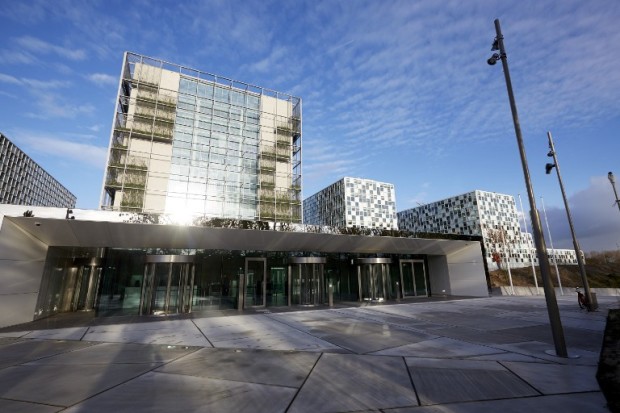ICC awards $250 each to Congo war crimes victims

This file photo taken on November 23, 2015, shows the building of the International Criminal Court (ICC) in The Hague, The Netherlands. AFP
The Hague, Netherlands — In its first such decision, the International Criminal Court on Friday awarded $250 dollars as “symbolic” damages to each victim of a former Congolese warlord, a sum swiftly dismissed as meaningless by those who lost homes and loved ones in a militia attack on their village 14 years ago.
The order was a landmark step for the tribunal, set up in 2002 to prosecute the world’s worst atrocities, marking the first time it has awarded individual reparations and placed monetary values on the harm caused by such crimes.
Presiding judge Marc Perrin de Brichambaut acknowledged the amount of $250 to each of the 297 victims of Germain Katanga “does not make up for the totality of the crimes”, estimating the total damage caused in the 2003 attack at $3.7 million.
READ: ICC lacks jurisdiction to try Duterte for crimes vs humanity—solon
But in announcing both collective and individual reparations, he said he hoped it would bring some “measure of relief” and help victims in the Democratic Republic of Congo rebuild their lives.
Article continues after this advertisementThe ICC sentenced Katanga to 12 years in jail in 2014 after convicting him of five charges of war crimes and crimes against humanity for the February 2003 ethnic attack on Bogoro, a village in troubled Ituri Province.
Article continues after this advertisementHe was accused of supplying weapons to his militia which went on a rampage, shooting and hacking to death with machetes some 200 people.
Katanga, who watched the proceedings by video-link from a jail in Kinshasa where he is on trial on separate charges, was also found liable for $1 million of the total compensation, though the court recognised that he was penniless, or “indigent”, and had no home or possessions.
It asked that he consider making a public apology or writing a letter to the victims, or even attending a public reconciliation ceremony.
‘Two days of beer’
“These individual reparations don’t have any symbolic value. Today $250 doesn’t mean anything in the DRC,” Salomon Kisembo Byaruhanga, a local tribal chief, told AFP.
“Those who will get it will most likely waste it all away on beer in two days,” he added, saying it would be far better to rebuild a village or construct a memorial.
In its 1,000-page reparations order, the court said it had assessed the total damage at $3,752,620. For instance it had valued each destroyed Bogoro home at $600, while the cost of each harvest lost that year was $150.
It also estimated that the psychological harm suffered by a person for the death of a close family member was $8,000, or $4,000 for a more distant relative. Most of the order is confidential to protect the identity of victims.
While no total sum was given for the collective reparations, the court said it should go towards projects to help the victims with housing, education and “income-generating activities” as well as counselling.
The Trust Fund for Victims, an independent body set up under the tribunal’s founding guidelines, has now been asked to consider using its resources to pay the reparations and to come up with a plan by late June.
Court officials said the fund could release up to $1 million in the Katanga case.
Legal representatives for the victims had assessed the damage at $16.4 million in a filing to the court last year. They calculated that 228 homes were destroyed, that the school was lost and that hundreds of cattle and other livestock had fled or been killed.
‘We’ve buried our dead’
“What will $250 change in our lives?” asked Jean Bosco Lalo, a coordinator for the Ituri Civil Society group of local associations.
“Our communities have already turned the page. Everyone has rebuilt their homes. We’ve buried our dead.”
Rights groups however welcomed the award as an “important decision.”
“Progressively, the ICC is developing the ways and means to respond to victims needs through its jurisprudence,” said Carla Ferstman, director of the victims advocacy group REDRESS.
The Trust Fund for Victims has $5 million available, of which $1 million has been set aside for the case of Thomas Lubanga, sentenced in 2012 to 14 years for conscripting child soldiers in the DRC.
In October, judges approved “symbolic reparations” to create a “living memorial”. But a final decision on collective reparations for Lubanga’s victims is still awaited. CBB